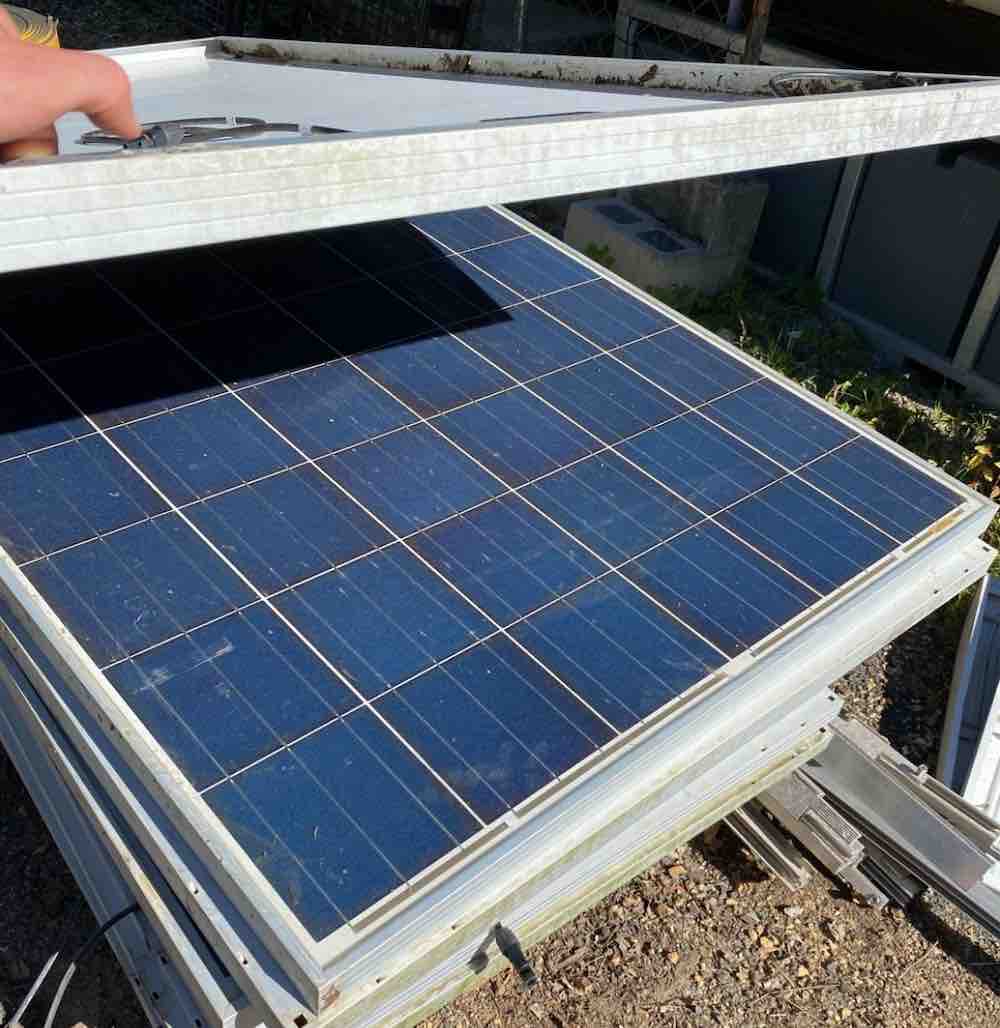
A waste and recycling centre in the New South Wales regional centre of Dubbo has become the testing ground for a groundbreaking solar project – the installation of an 8kW PV system using second hand panels.
Dubbo Regional Council (DRC) announced its participation in the trial on Tuesday, in partnership with Blue Tribe, CSIRO, Solar Professionals and the New South Wales state government.
Council’s role is to host the second-hand solar system on its Small Vehicle Receival Centre at the Whylandra Waste and Recycling Centre. If all goes to plan, it’s hoped that Dubbo residents can reuse solar panels in their own homes or businesses.
The project was born when School Infrastructure NSW, faced with the challenge of decommissioning around 30,000 PV modules over the coming few years, engaged Blue Tribe to help work out how to manage the solar waste stream responsibly.
As Blue Tribe tells it, “numerous ideas were developed and the Second Life Solar concept was born.”
That concept – and plans to give it a test-run with a second-hand system in Dubbo – then received NSW government backing in the second round of the Environment Protection Authority’s Circular Solar grants program.
The Circular Grants scheme aims to address the estimated 3,000–10,000 tonnes a year of waste solar panels and battery systems NSW alone is expected to be generating by 2025; and 40,000-71,000 tonnes per year by 2035.
Solar panel collection and recycling programs will be a huge part of the solution to this waste problem, and a dedicated solar recycling industry is slowly establishing itself in Australia, via start-ups including Reclaim PV, the Solar Recovery Corporation, and a co-operative called Lotus Energy.
But recycling is not the only option. As One Step reported here, another important avenue that is being explored is the market for second-hand panels, which currently exists at a niche level, only – but holds major potential.
Solar panels are designed to operate for 25-30 years but as consumers upgrade to larger rooftop systems, they are often replacing modules that are still fully operational and less than 10 years old – and because they don’t know what else to do with them they often wind up in the tip.
In Dubbo, which has been a leader in rooftop solar uptake in New South Wales, this threatens to become a big problem for local waste management services – unless, of course, it can be flipped into an even bigger opportunity.
“There are more than 2.8 million small-scale solar systems installed Australia-wide, and Dubbo is the second largest installer of small-scale solar systems in NSW,” said the DRC’s manager of resource recovery and efficiency, John Wisniewski.
“So if we can find extended uses for our solar panels, we’ll be reducing our overall environmental footprint,” he said, adding that the trial would also help boost the service life of solar panels, increase the uptake of renewables and help meet Council’s 50% renewable energy target.
“Around the country we are installing record amounts of rooftop solar systems but at the same time we are also throwing away fully functioning older solar modules into landfill,” said James McGregor from the Blue Tribe Company.
“As we transition to 100% renewables it is like filling up a bucket with a hole in the bottom of it.
“This project is about giving these panels a second life by diverting them from landfill and utilising them to continue to generate clean energy to help us get to NSW’s net zero targets sooner,” he added.
“We couldn’t think of a better place to trial this than at DRC’s Whylandra Waste and Recycling Centre in the heart of one of the leading solar communities in Australia.”
NSW isn’t the only state exploring this avenue for used solar panels.
A Queensland-based research project investigating the potential to reuse second-hand solar panels, including on the rooftops of households unable to afford the cost of a new PV system, recently won the backing of Energy Consumers Australia.
The project, called Reclaimed PV Panels Market Assessment, and led by the University of Queensland, will use the $42,869 ECA grant to explore potential revenue streams and consumer interest for used solar panels.
The project will also identify current market or policy barriers to reusing, repurposing, and recycling discarded solar modules, and explore opportunities to use a circular economy to better include consumers not currently able to access PV due to financial constraints.

Sophie is editor of One Step Off The Grid and editor of its sister site, Renew Economy. Sophie has been writing about clean energy for more than a decade.

